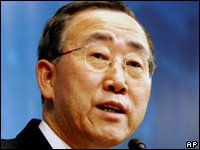New Government in Sweden
 Well, things do happen in life, as we know.
Well, things do happen in life, as we know.On Friday I was appointed Foreign Minister of Sweden in a move that was widely seen as somewhat surprising.
And in many ways it was. But when asked, while it wasn't entirely easy to say yes, it would have been impossible to say no.
So that's the way it is. And there is a very good team at the ministry with Gunilla Carlsson doing international development issues and Maria Borelius doing international trade. In addition, there is Cecilia Malmström as Minister for European Affairs located in the Prime Minister's Office.
All together a rather strong team.
And the policy declaration of the new government is also very clear on the priorities also in foreign affairs.
We clearly want to be in the centre of the process of European integration. We want a Europe that is a strong voice for freedom, democracy, peace and reconciliation throughout the world. We are convinced of the need to go on with the process of enlargement of the European Union. We seek security in the cooperation with other nations. We value the transatlantic link. We remain a strong supported of the United Nations.
All in all a modern foreign policy.
So that's what I'm doing at the moment. These days to a large extent getting the house in order. But then onwards...







